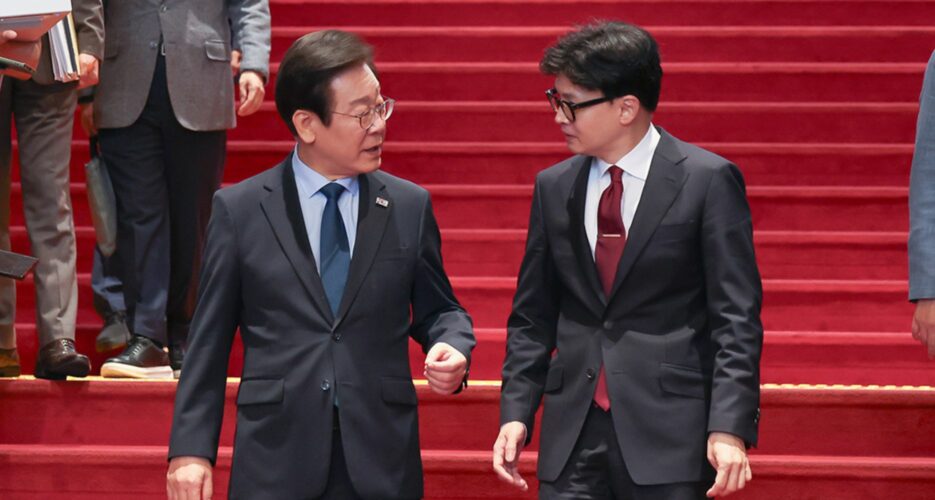With concerns over Chinese voter impact, lawmakers propose longer residency periods and reciprocity clauses
From left: Lee Jae-myung, leader of the opposition Democratic Party speaks with Han Dong-hoon, leader of the ruling People Power Party at the National Assembly on Sep. 1, 2024 | Image: Democratic Party
South Korea’s ruling People Power Party (PPP) leader Han Dong-hoon called for stricter voting rights for foreign nationals, particularly Chinese citizens. The proposed changes aim to extend residency requirements and limit the voting rights of foreign residents whose home countries do not offer similar rights to South Koreans.
A law enacted in 2005 has permitted foreign permanent residents to vote after three years of residency, but the policy has faced renewed scrutiny following a sharp increase in eligible foreign voters, from 6,726 in 2006 to 127,623 in 2022.
South Korea’s ruling People Power Party (PPP) leader Han Dong-hoon called for stricter voting rights for foreign nationals, particularly Chinese citizens. The proposed changes aim to extend residency requirements and limit the voting rights of foreign residents whose home countries do not offer similar rights to South Koreans.
A law enacted in 2005 has permitted foreign permanent residents to vote after three years of residency, but the policy has faced renewed scrutiny following a sharp increase in eligible foreign voters, from 6,726 in 2006 to 127,623 in 2022.
Get your
KoreaPro
subscription today!
Unlock article access by becoming a KOREA PRO member today!
Unlock your access
to all our features.
Standard Annual plan includes:
-
Receive full archive access, full suite of newsletter products
-
Month in Review via email and the KOREA PRO website
-
Exclusive invites and priority access to member events
-
One year of access to NK News and NK News podcast
There are three plans available:
Lite, Standard and
Premium.
Explore which would be
the best one for you.
Explore membership options
© Korea Risk Group. All rights reserved.
No part of this content may be reproduced, distributed, or used for
commercial purposes without prior written permission from Korea Risk
Group.












